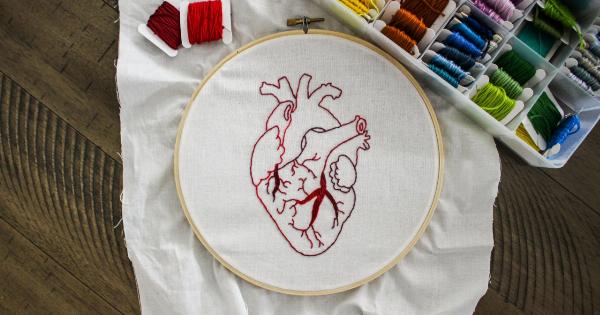Stress is an inevitable aspect of life. According to a report by the American Psychological Association, stress levels have significantly increased over the past decade.
Stress can have a substantial impact on the cardiovascular system and can lead to several health problems in both men and women.
Effects of Stress on the Cardiovascular System
Stress activates the sympathetic nervous system, which leads to an increase in the levels of adrenaline and cortisol. These hormones can increase heart rate, blood pressure and cause narrowing of blood vessels.
This response is commonly referred to as the “fight or flight” response. In the short term, this response can be beneficial as it can help individuals respond to a threat or danger. However, chronic stress can have serious ramifications for cardiovascular health.
Gender Differences in the Effects of Stress on the Cardiovascular System
There are some gender differences in the effects of stress on the cardiovascular system. Men are more likely to experience a heart attack due to stress, while women are more likely to develop conditions such as hypertension and stroke.
This is because women tend to have smaller blood vessels, and under stress, these vessels can constrict, leading to a decrease in blood flow to vital organs such as the heart and brain.
Stress and Coronary Artery Disease
Coronary artery disease (CAD) is a condition where there is a buildup of plaque in the arteries that supply blood to the heart.
Stress can exacerbate CAD as it causes an increase in heart rate and blood pressure, leading to an increased workload on the heart. This increased workload can lead to strain on the heart muscles and can cause heart damage.
Stress and Hypertension
Hypertension, also known as high blood pressure, is a condition where the pressure of blood against the walls of the arteries is high. Chronic stress can lead to hypertension.
This is because stress causes an increase in the production of hormones such as cortisol, which can cause an increase in blood pressure. Hypertension can lead to several health problems such as stroke, heart attack, and kidney disease.
Stress and Cardiomyopathy
Cardiomyopathy is a condition where there is damage to the heart muscles. Stress-induced cardiomyopathy, also known as broken heart syndrome, is a condition where there is a temporary weakening of the heart muscles.
This condition can occur due to acute stress such as the death of a loved one, a breakup, or a traumatic event. Broken heart syndrome can cause symptoms such as chest pain, shortness of breath, and heart palpitations.
Stress Management Techniques
Managing stress is essential for maintaining good cardiovascular health. Some stress management techniques include exercise, meditation, deep breathing techniques, and yoga.
These techniques can help reduce stress, lower blood pressure, and improve cardiovascular health.
Conclusion
Stress can have a significant impact on the cardiovascular system and can lead to several health problems. It is important to manage stress through various techniques to maintain good cardiovascular health.
Men and women experience different effects of stress on the cardiovascular system, and it is essential to be aware of these differences to prevent and manage cardiovascular diseases.

























